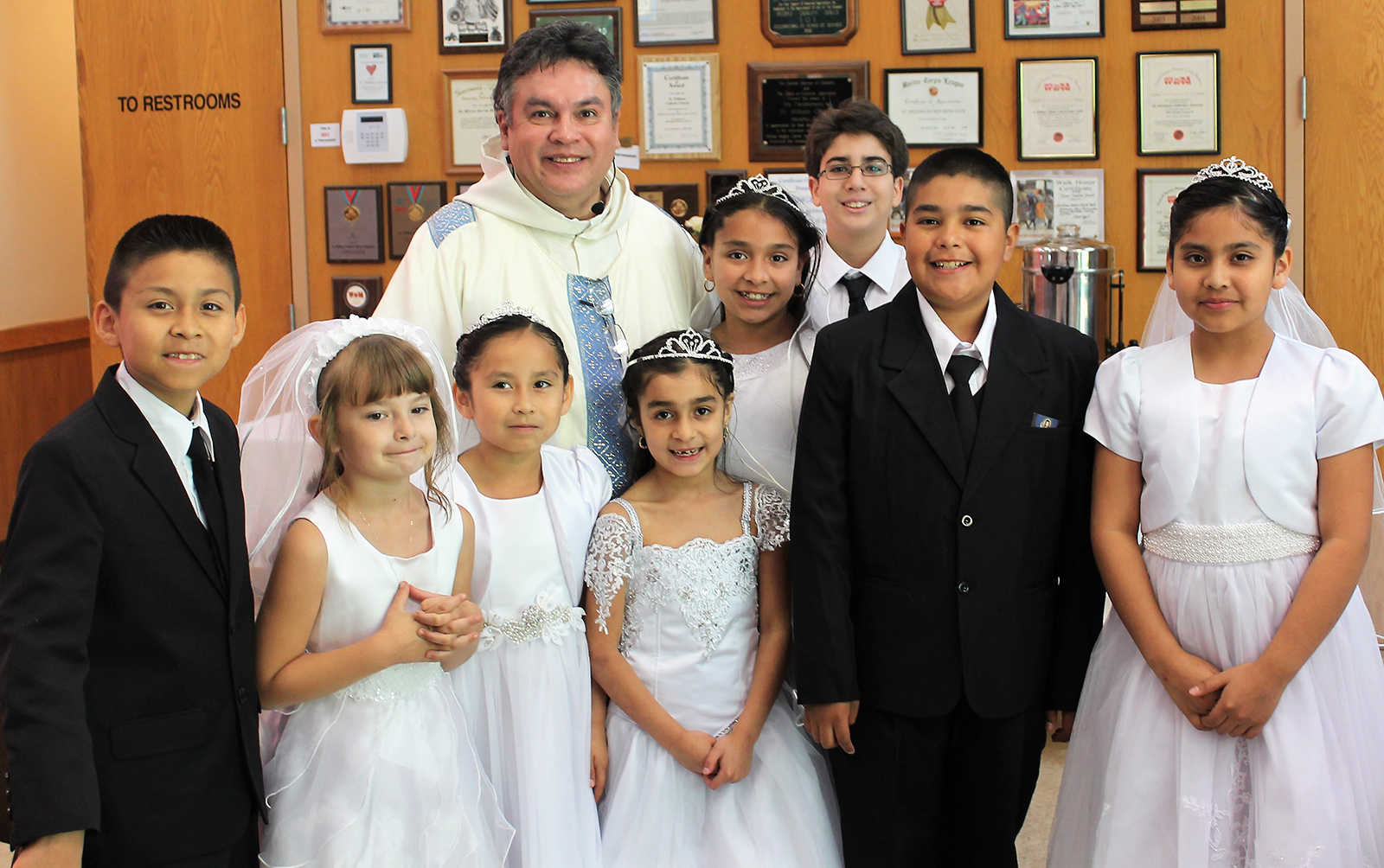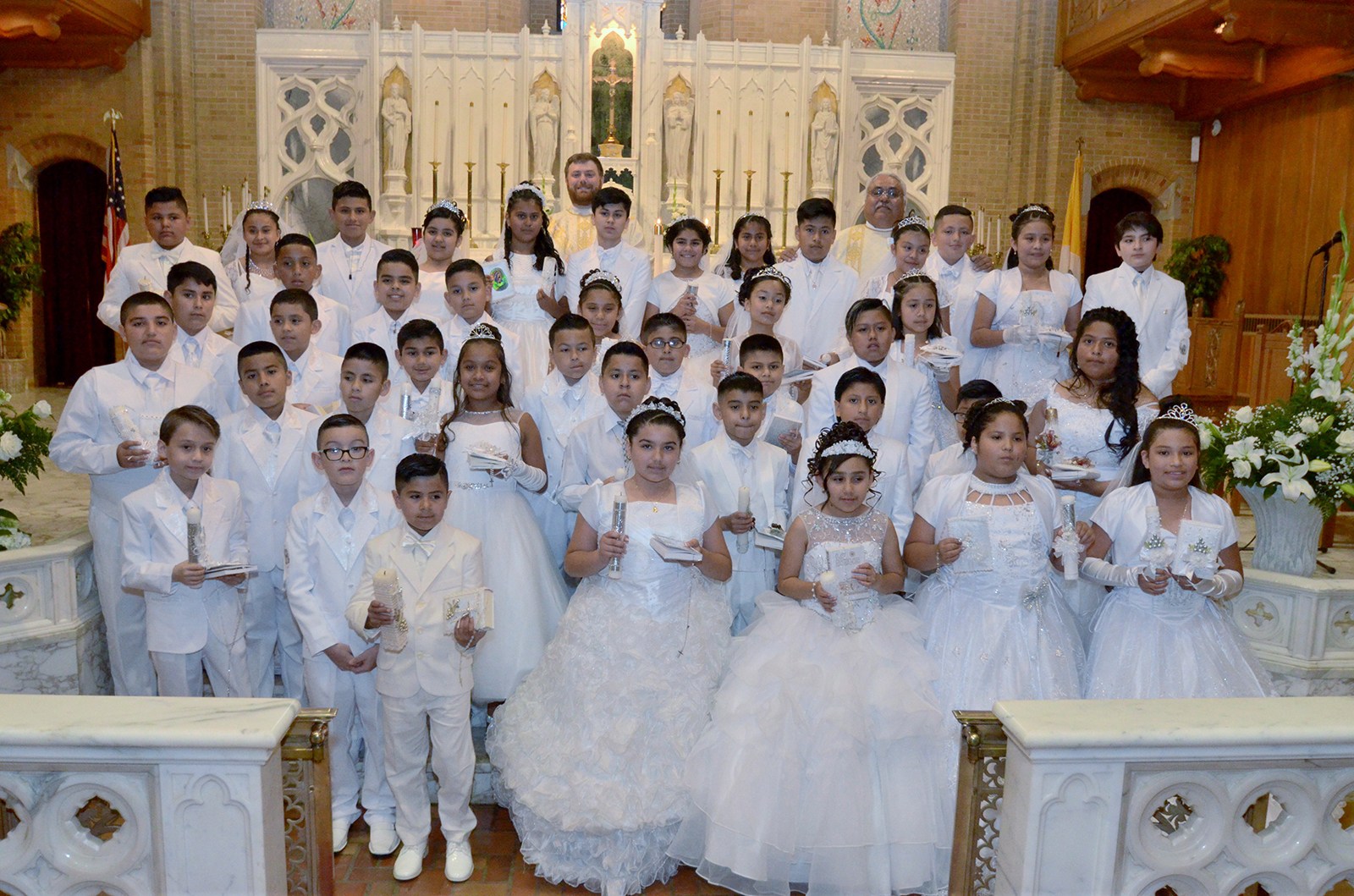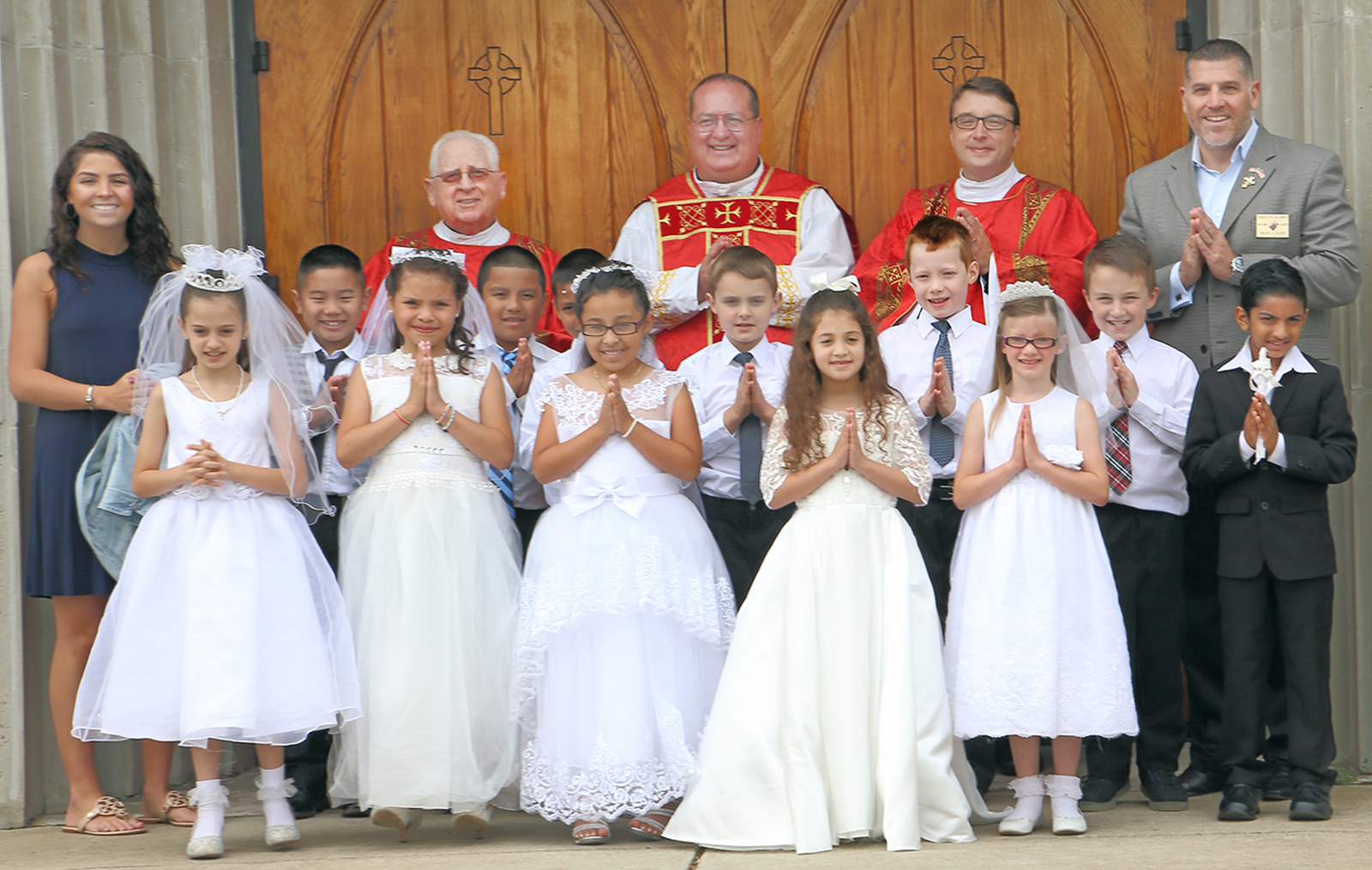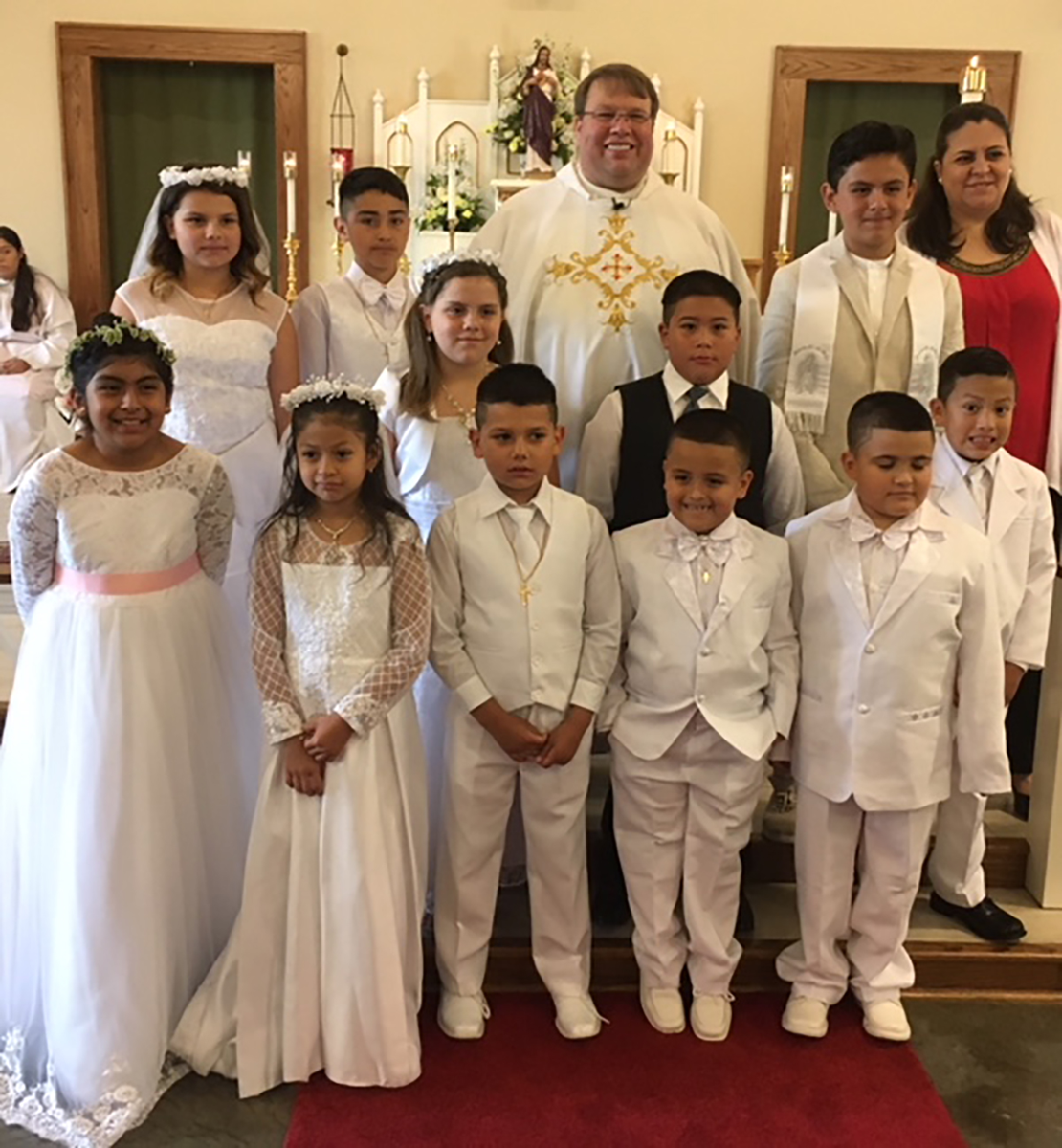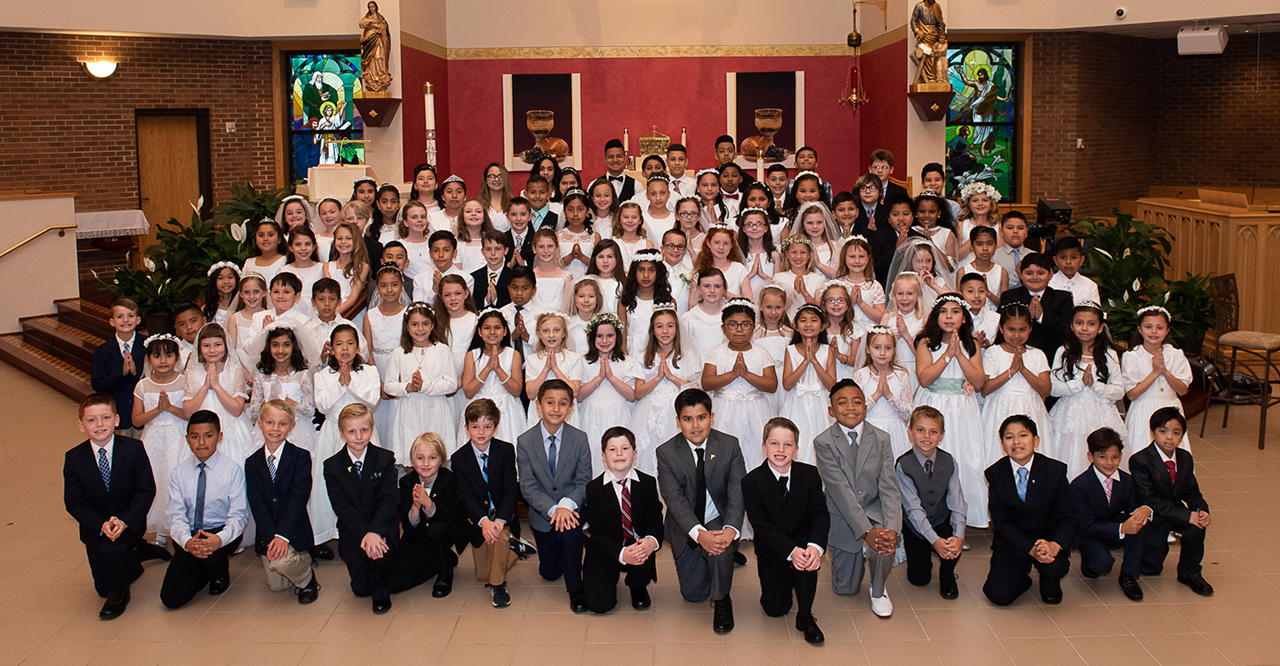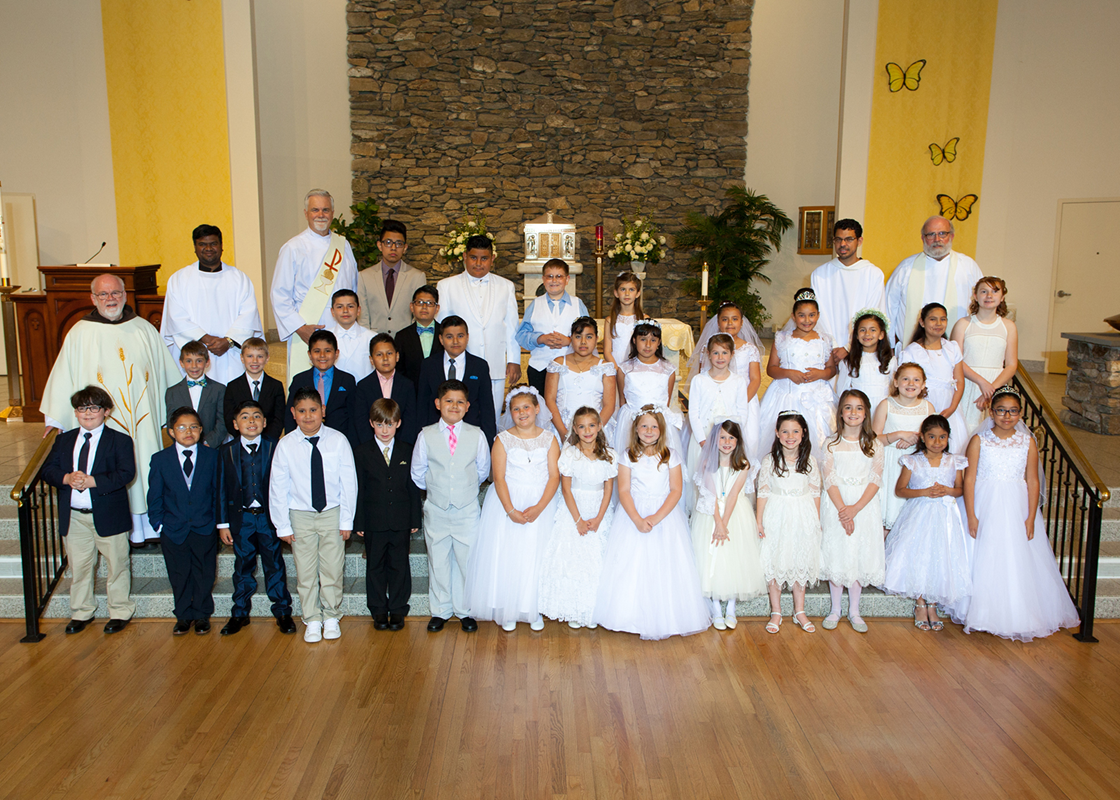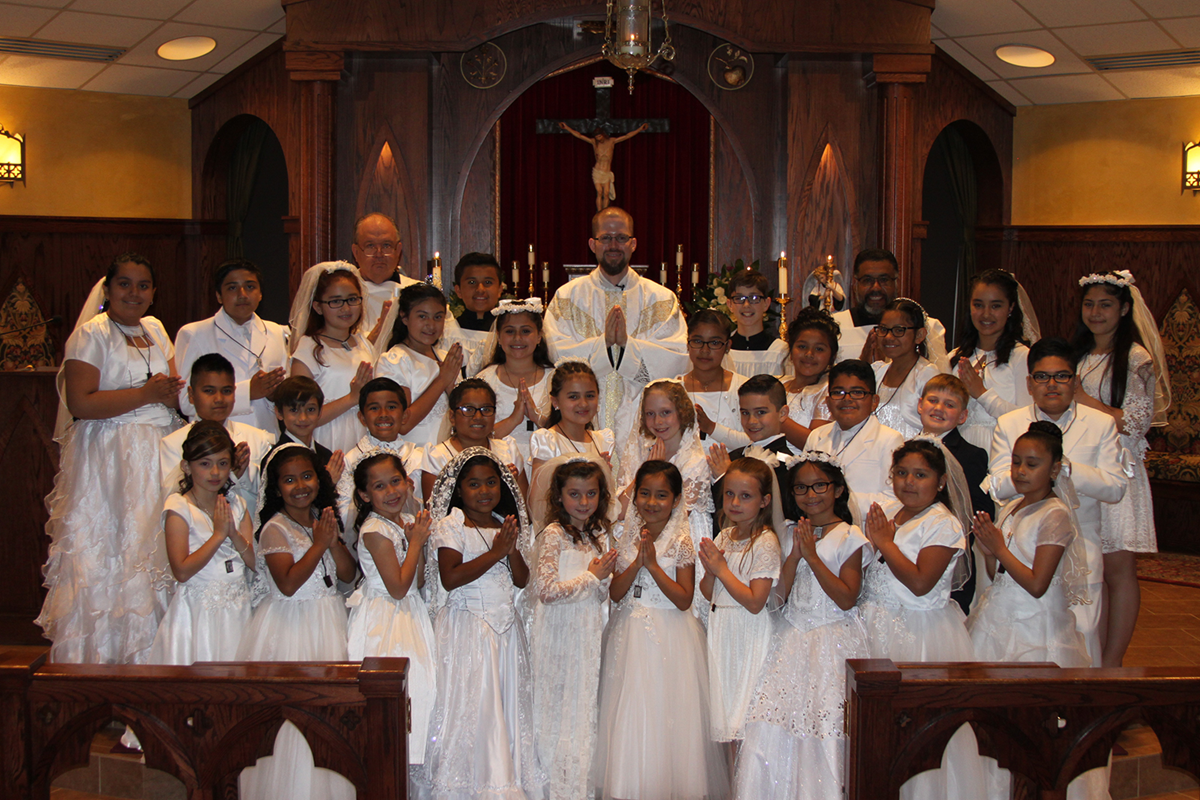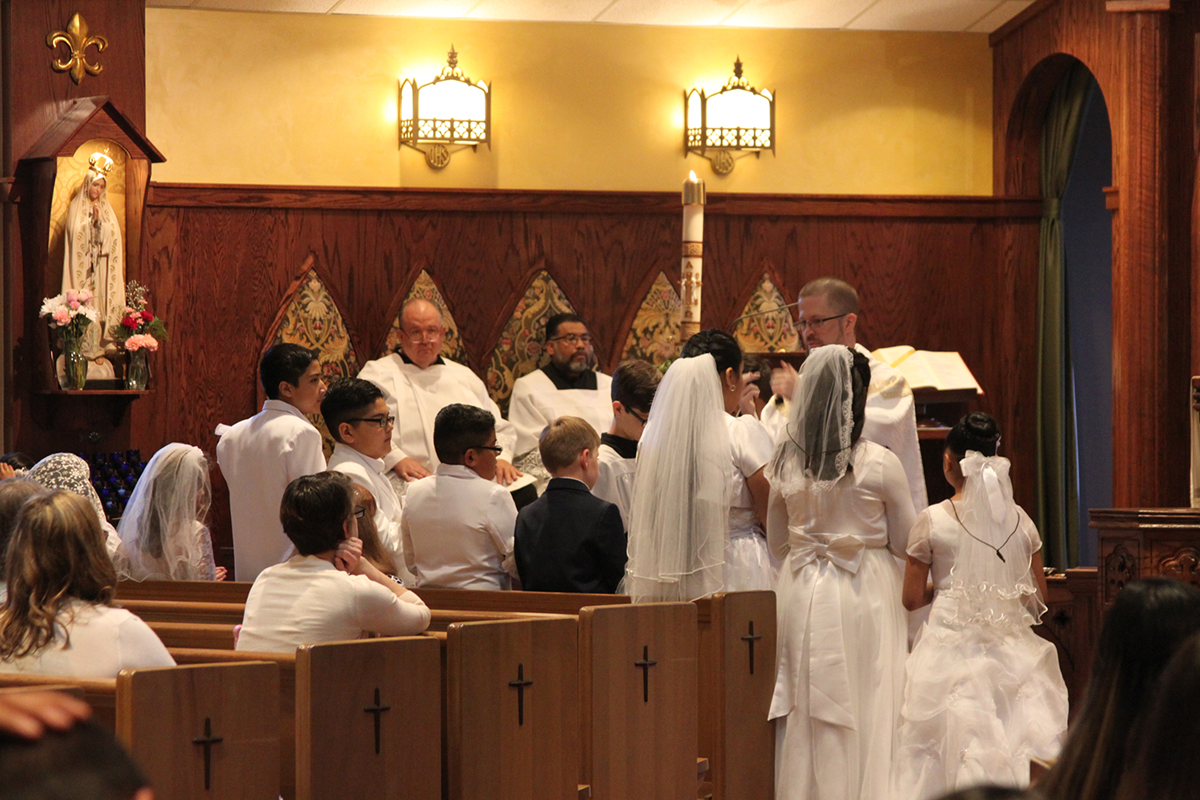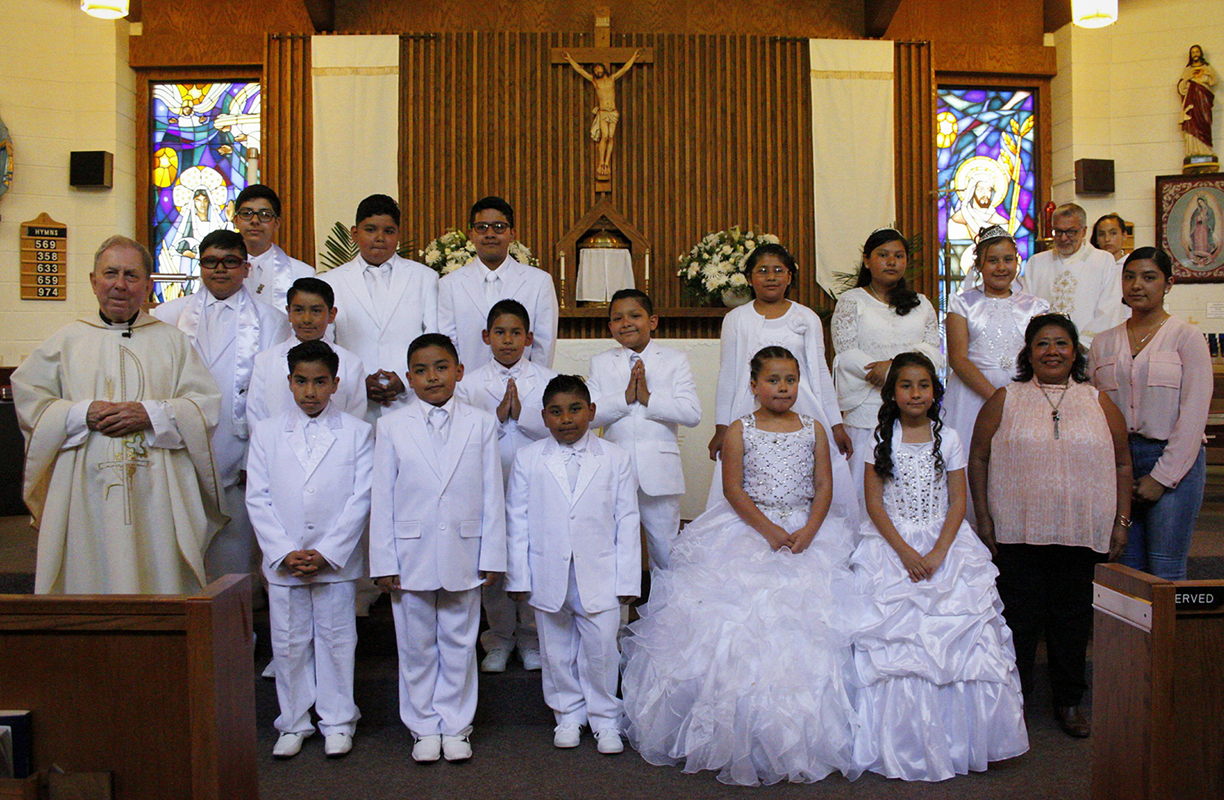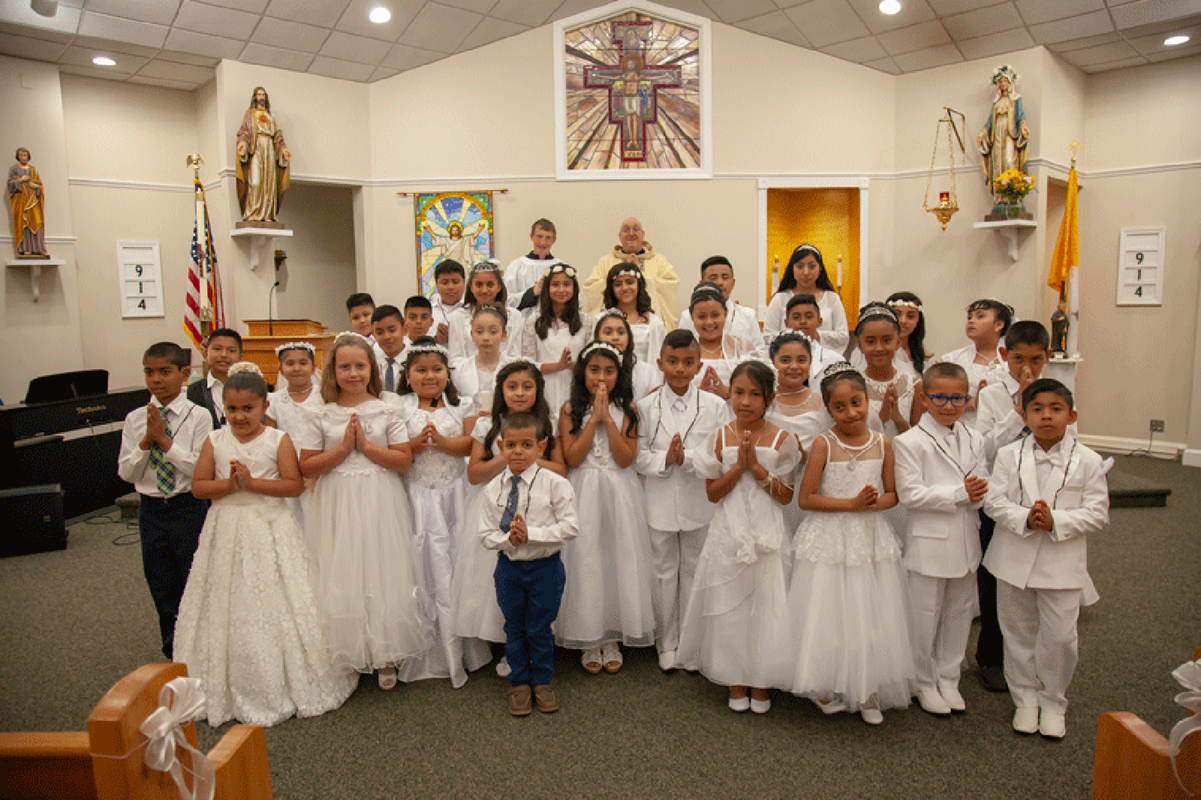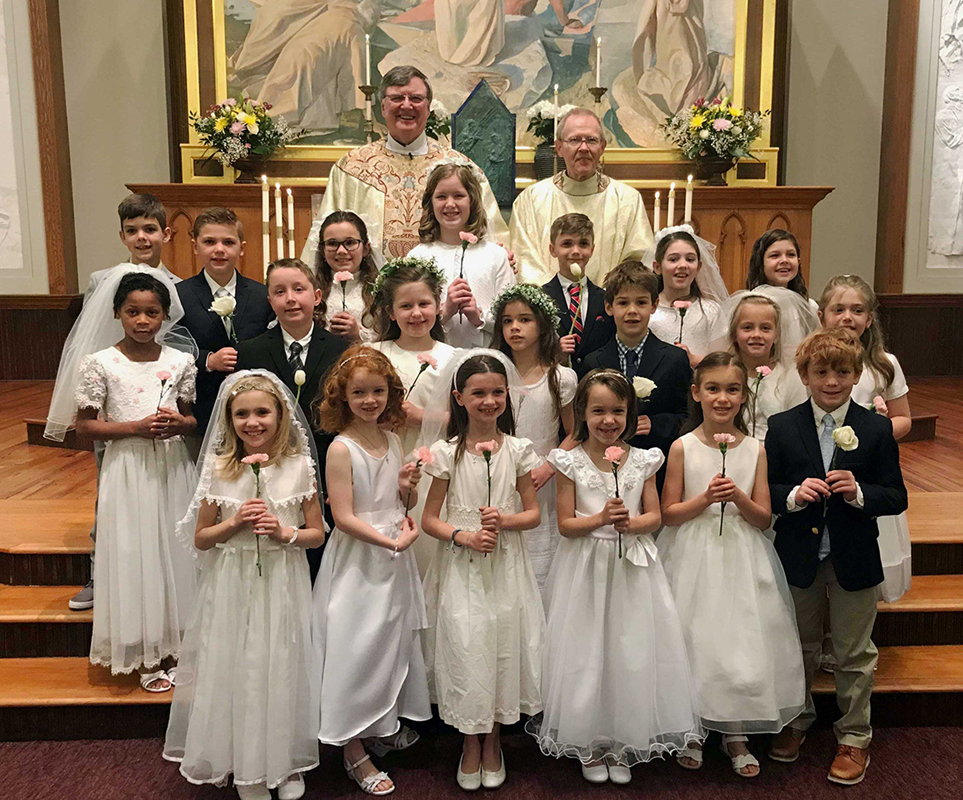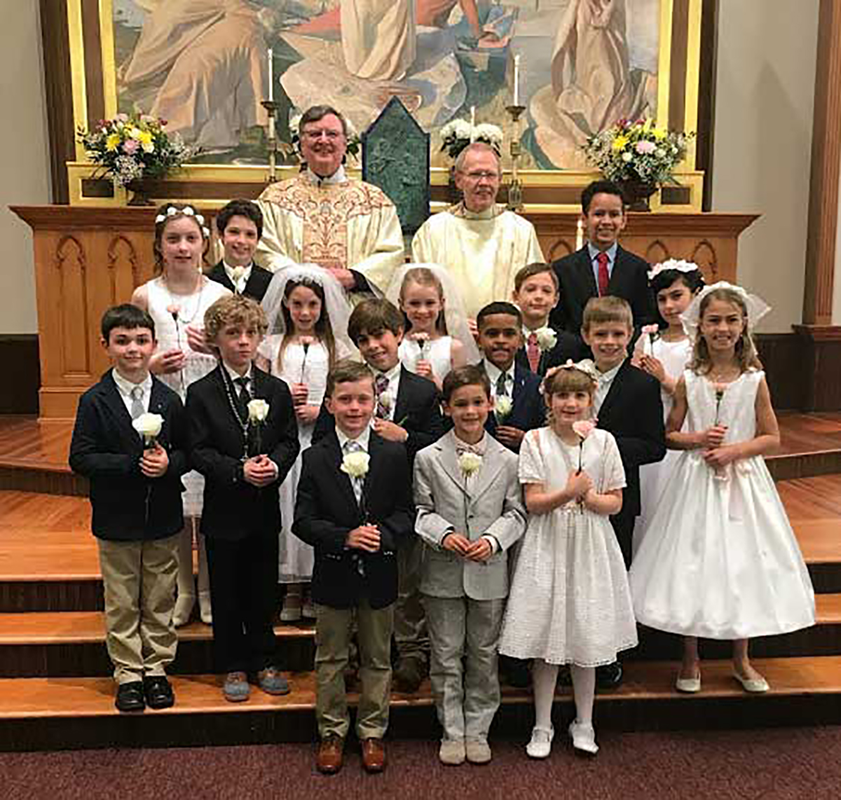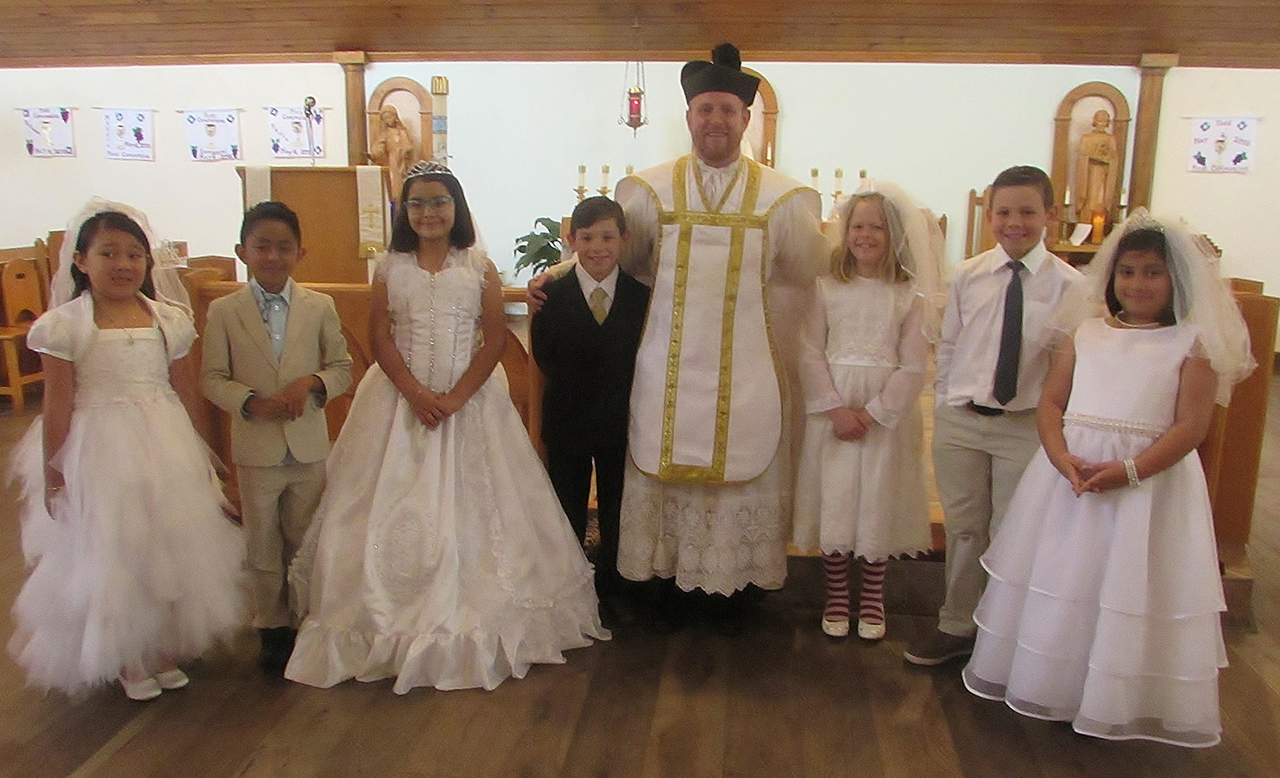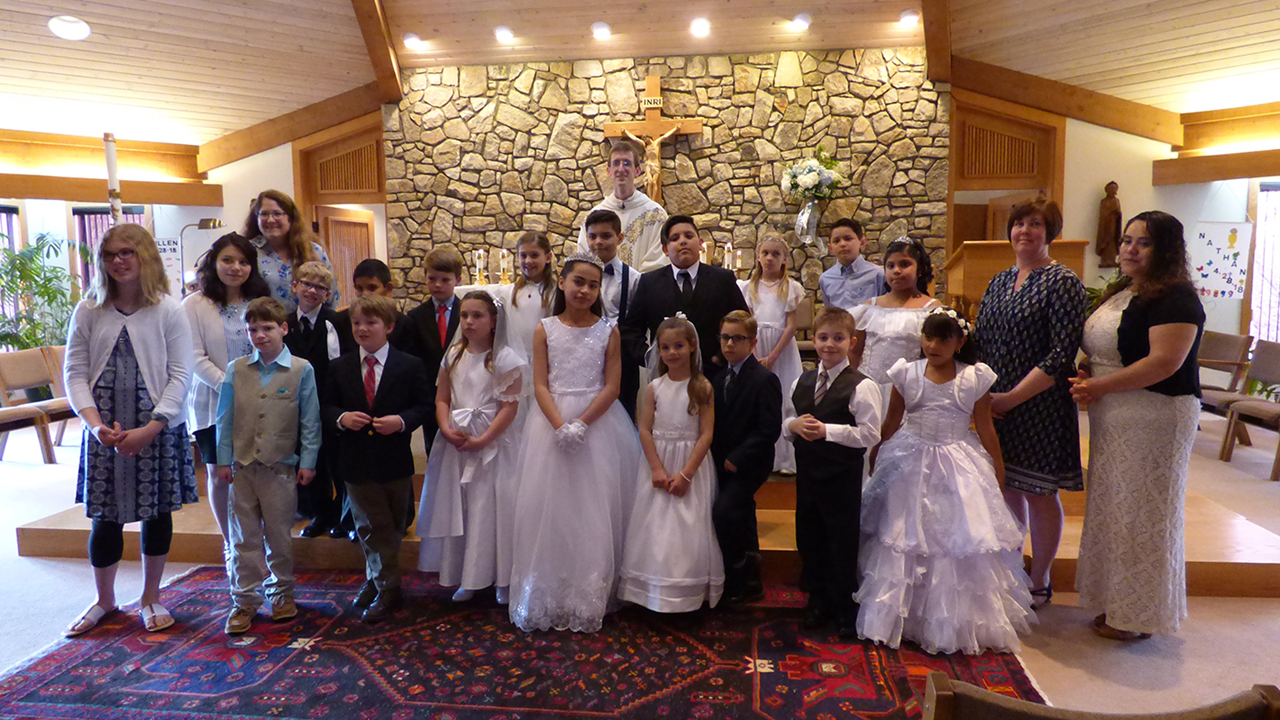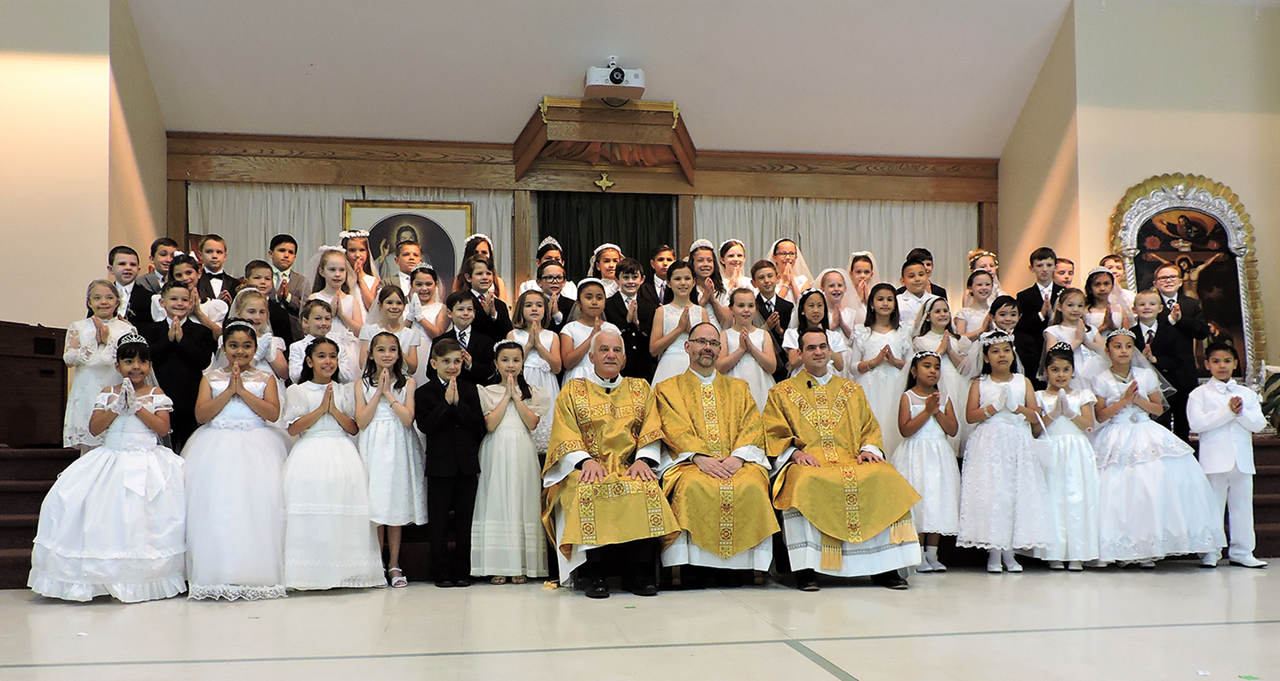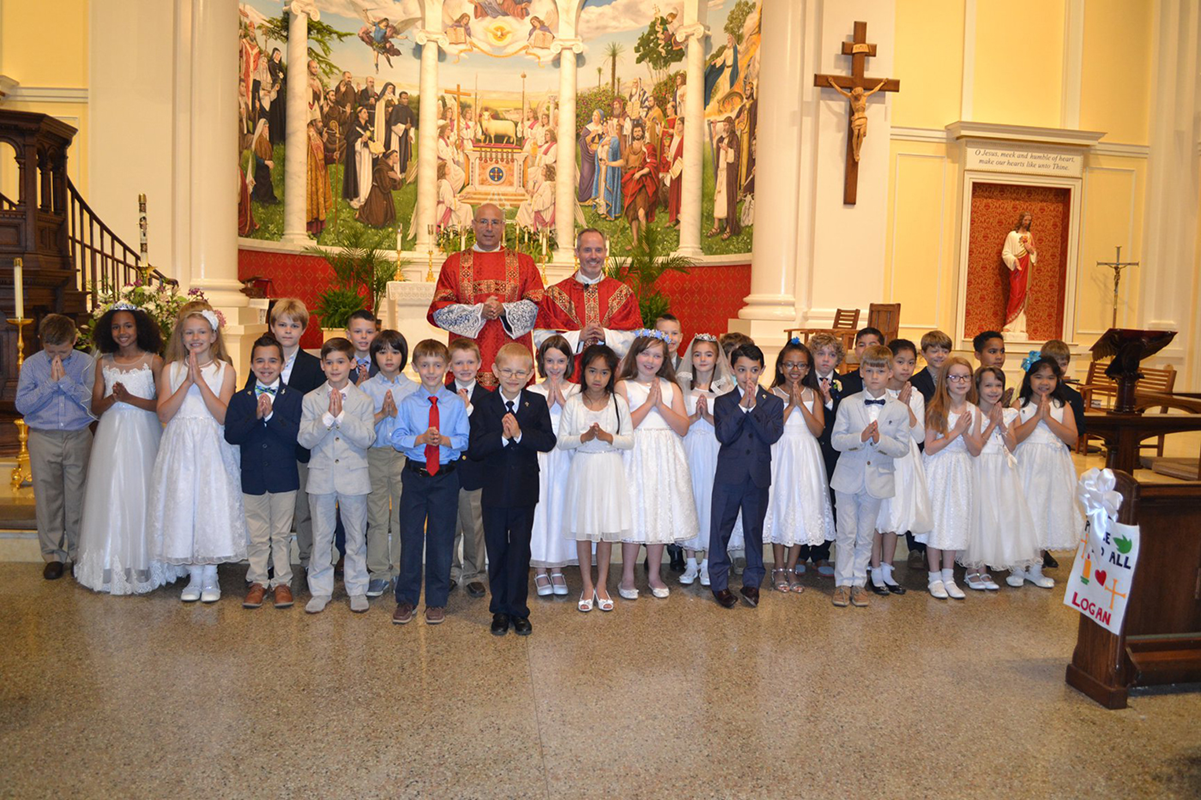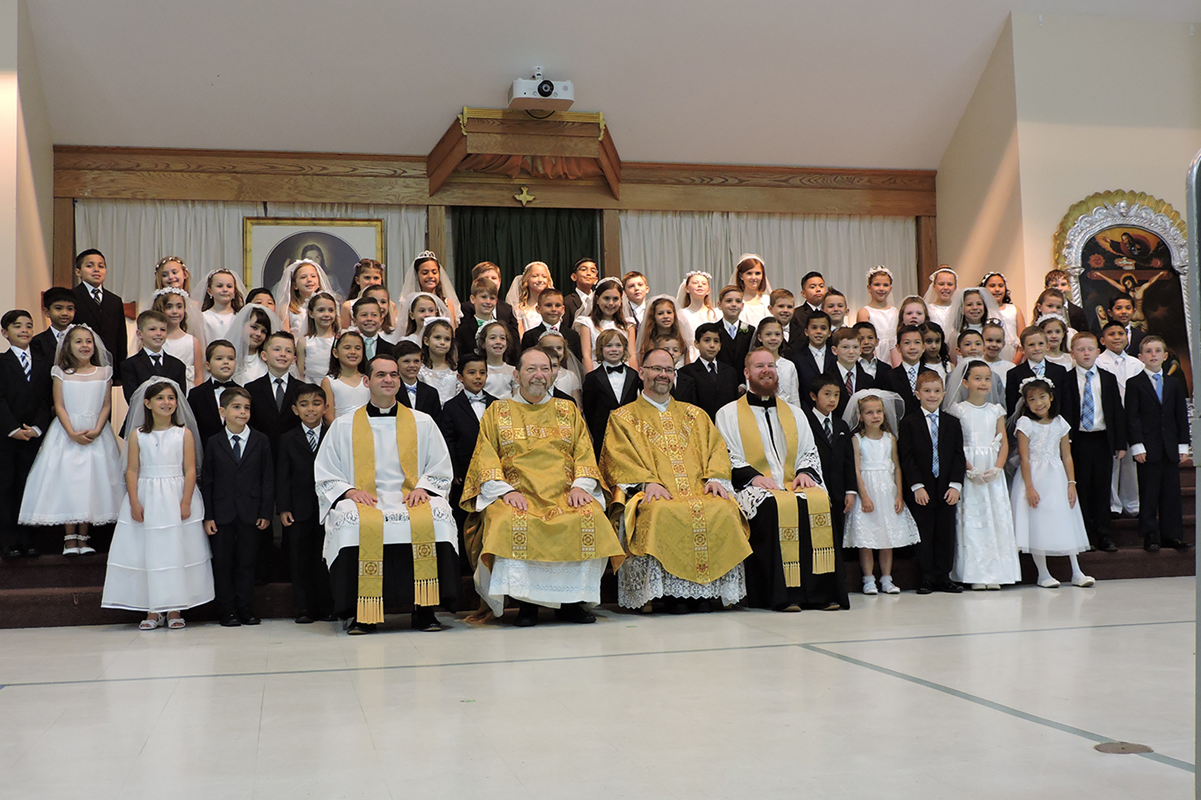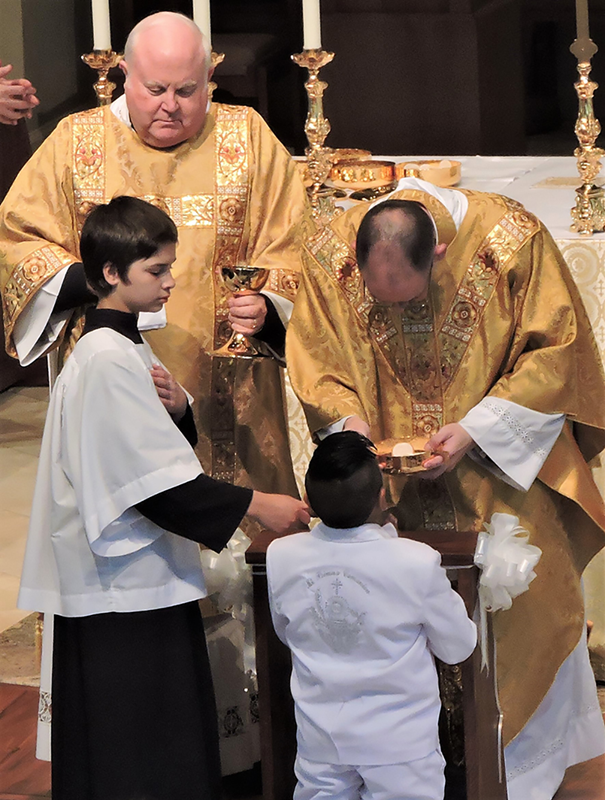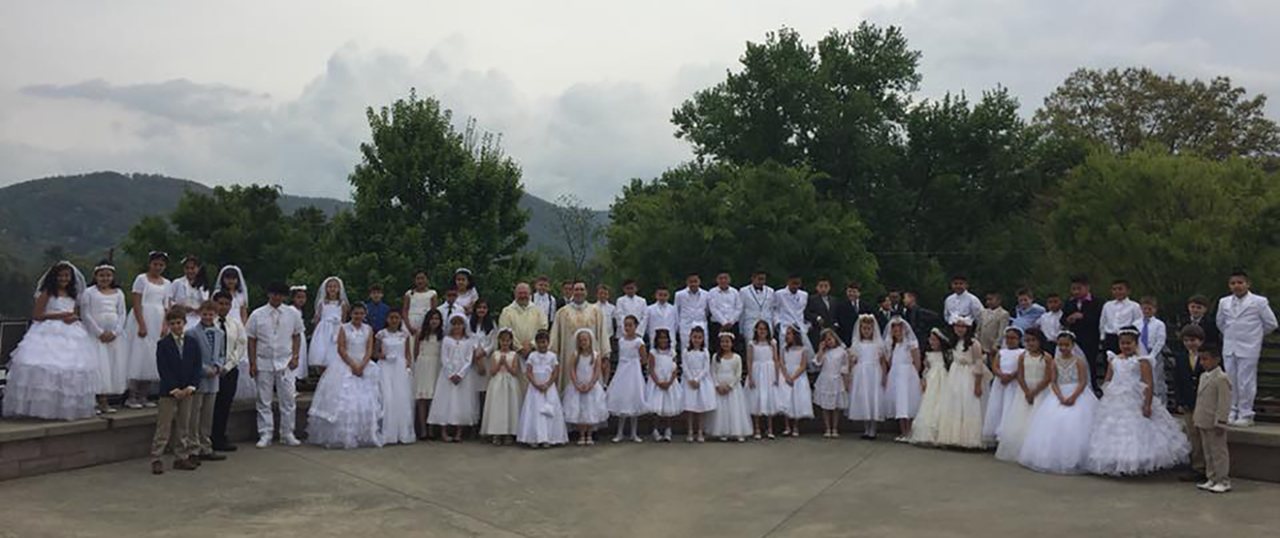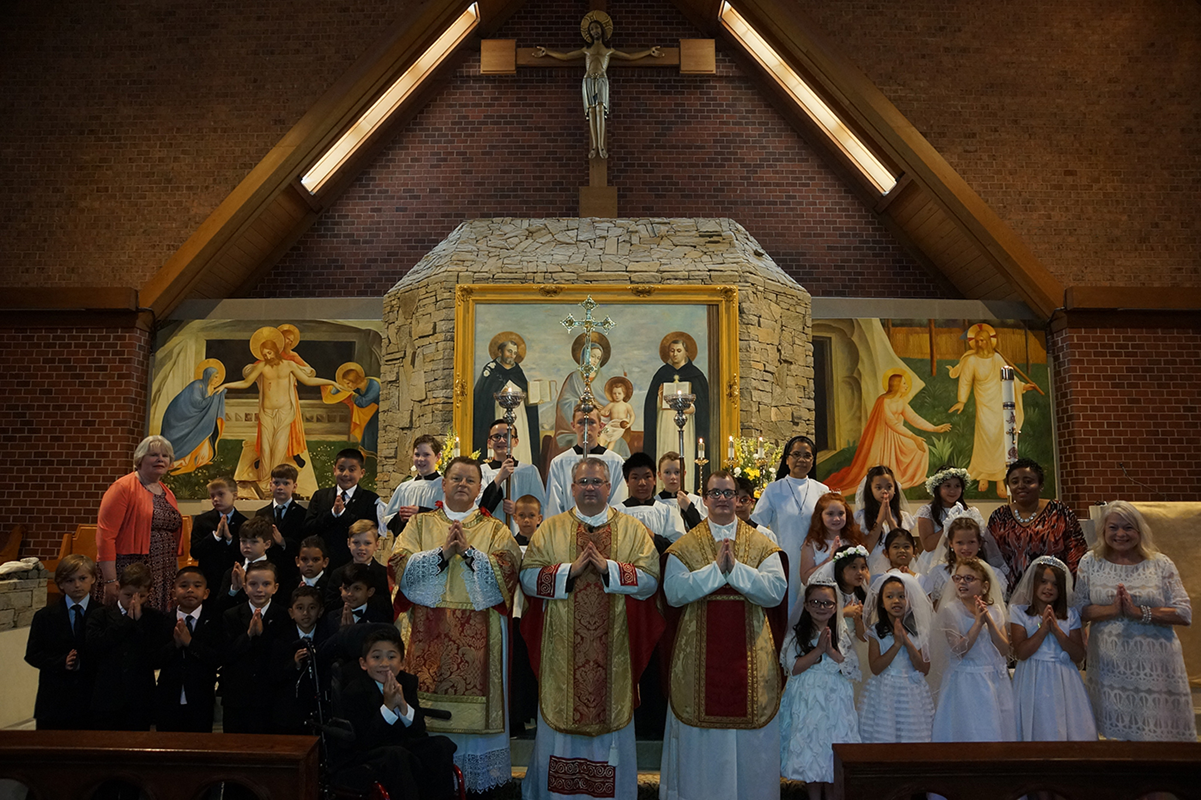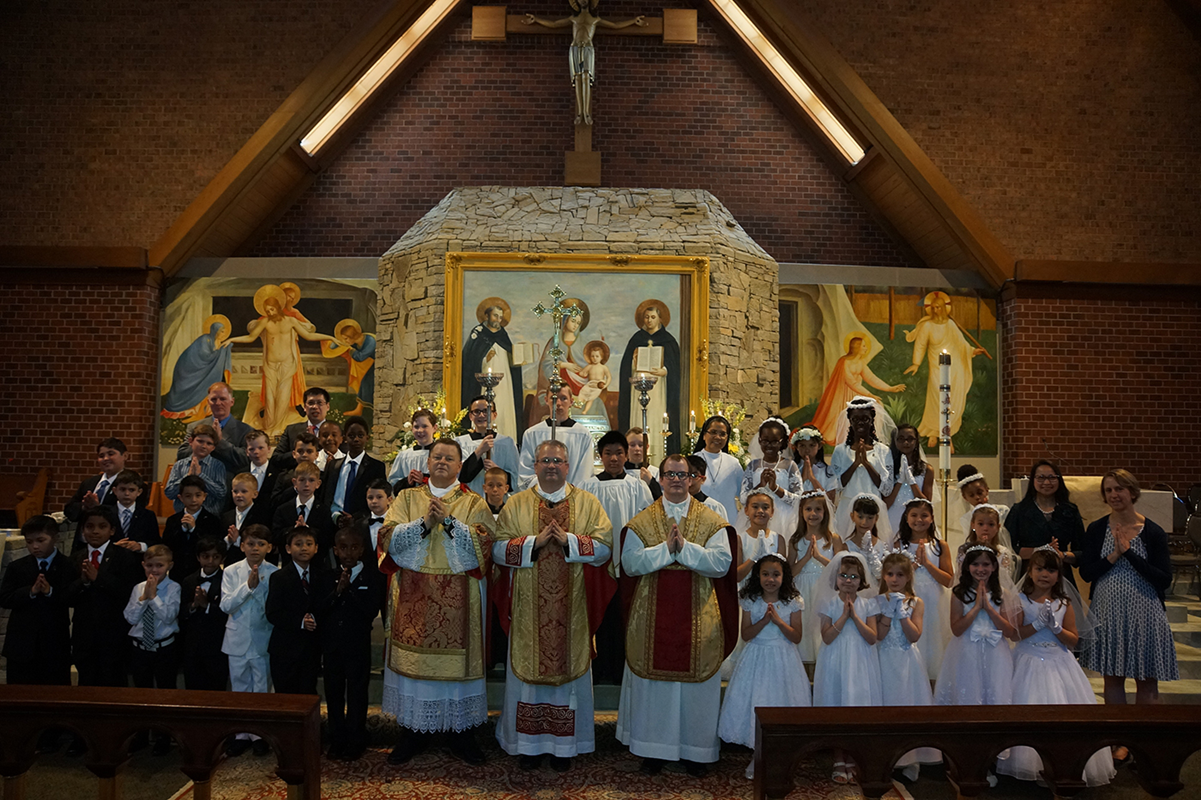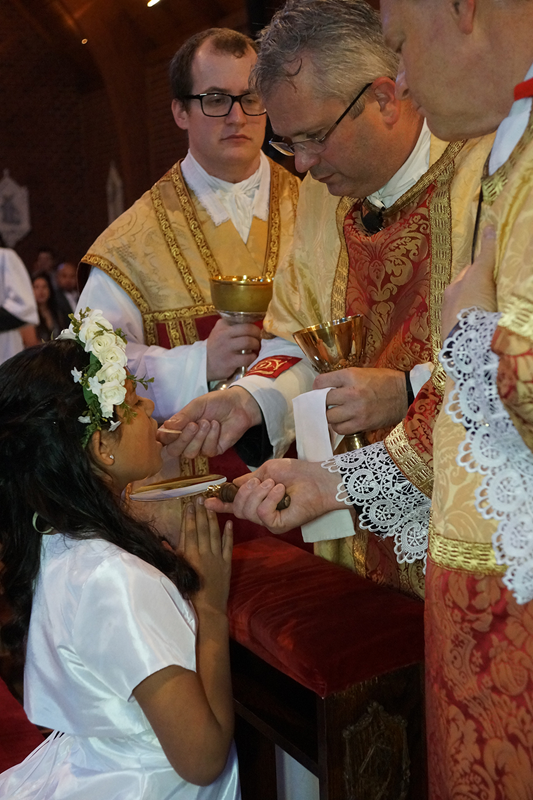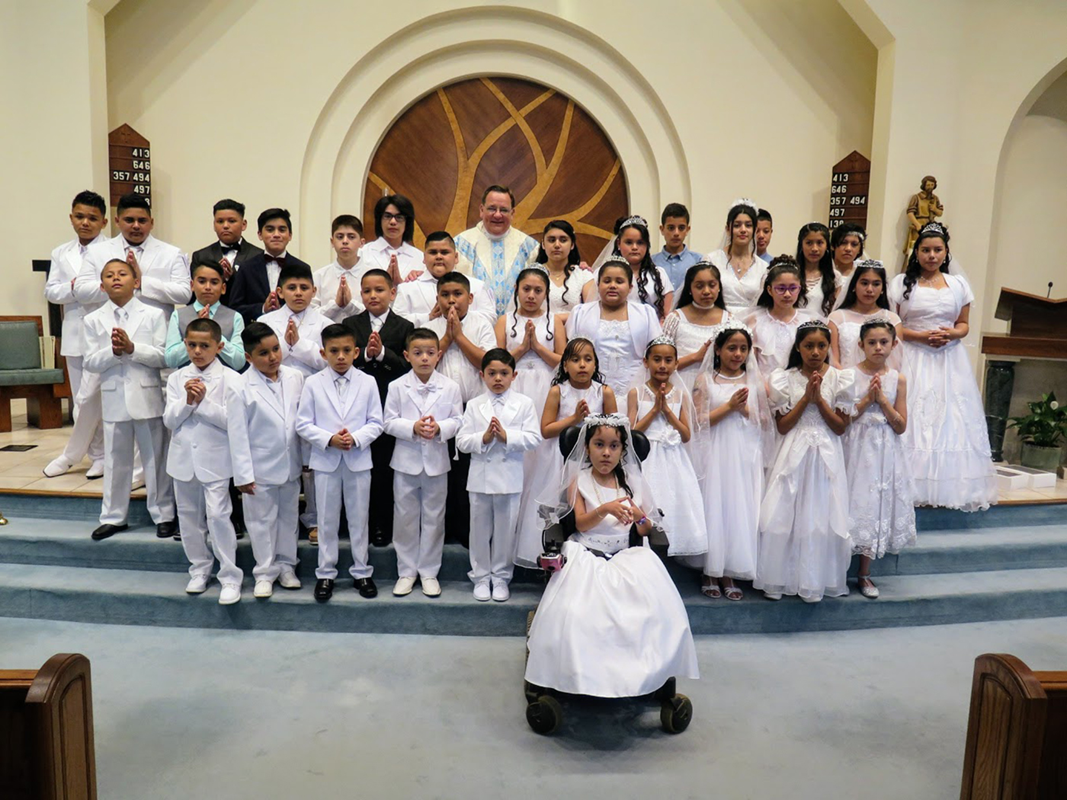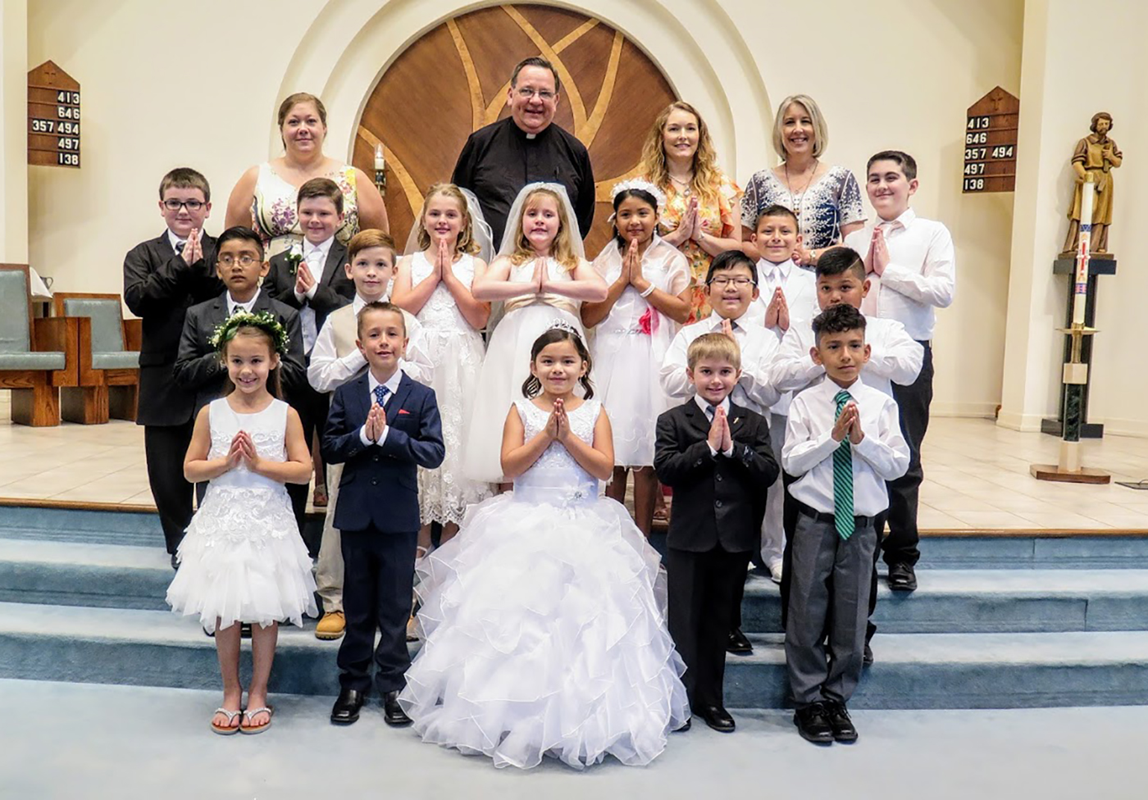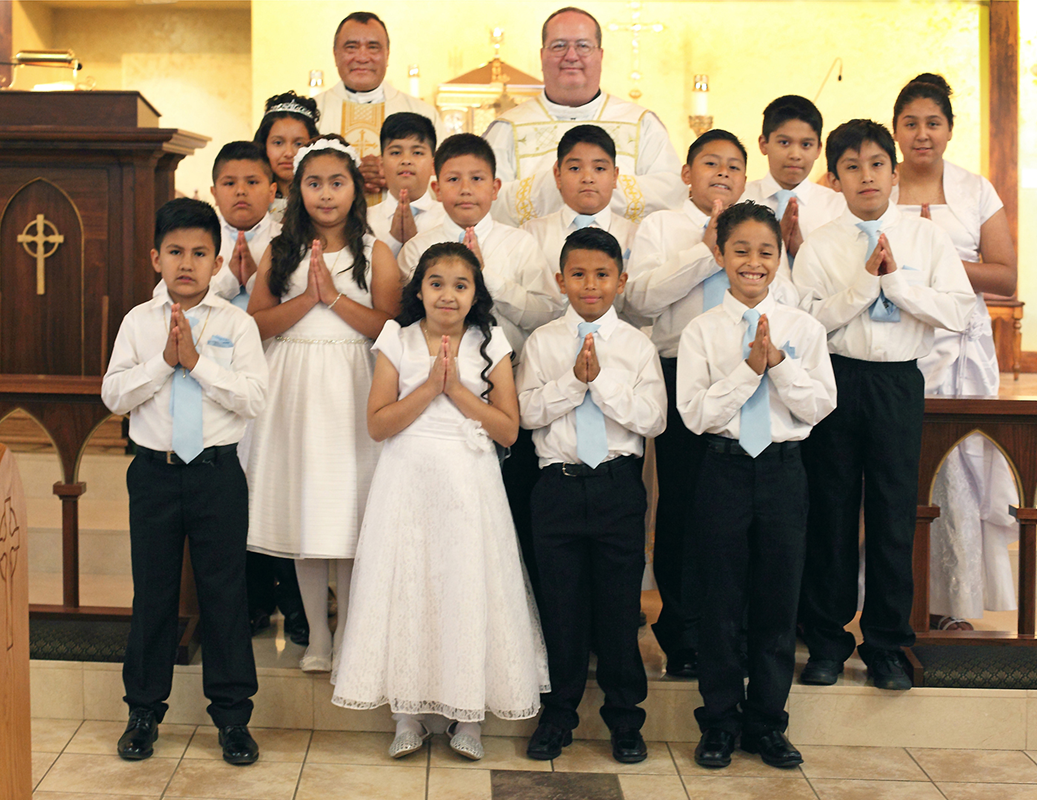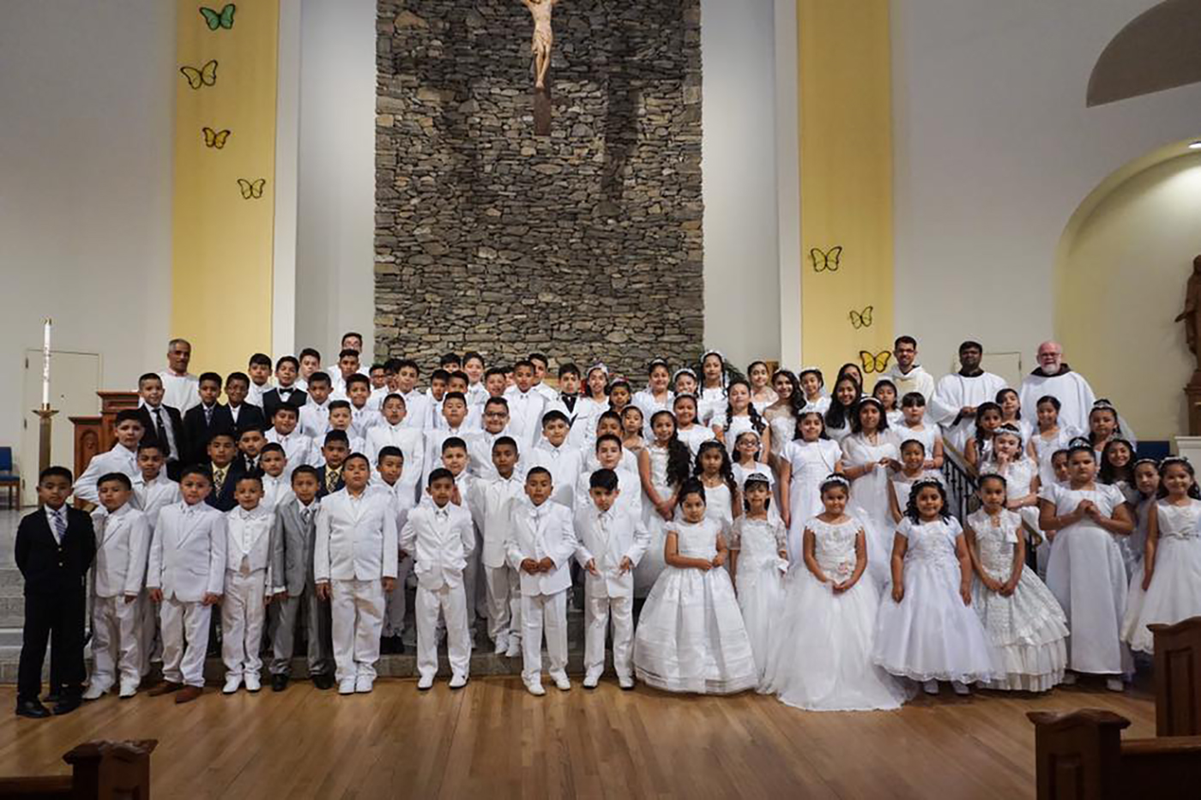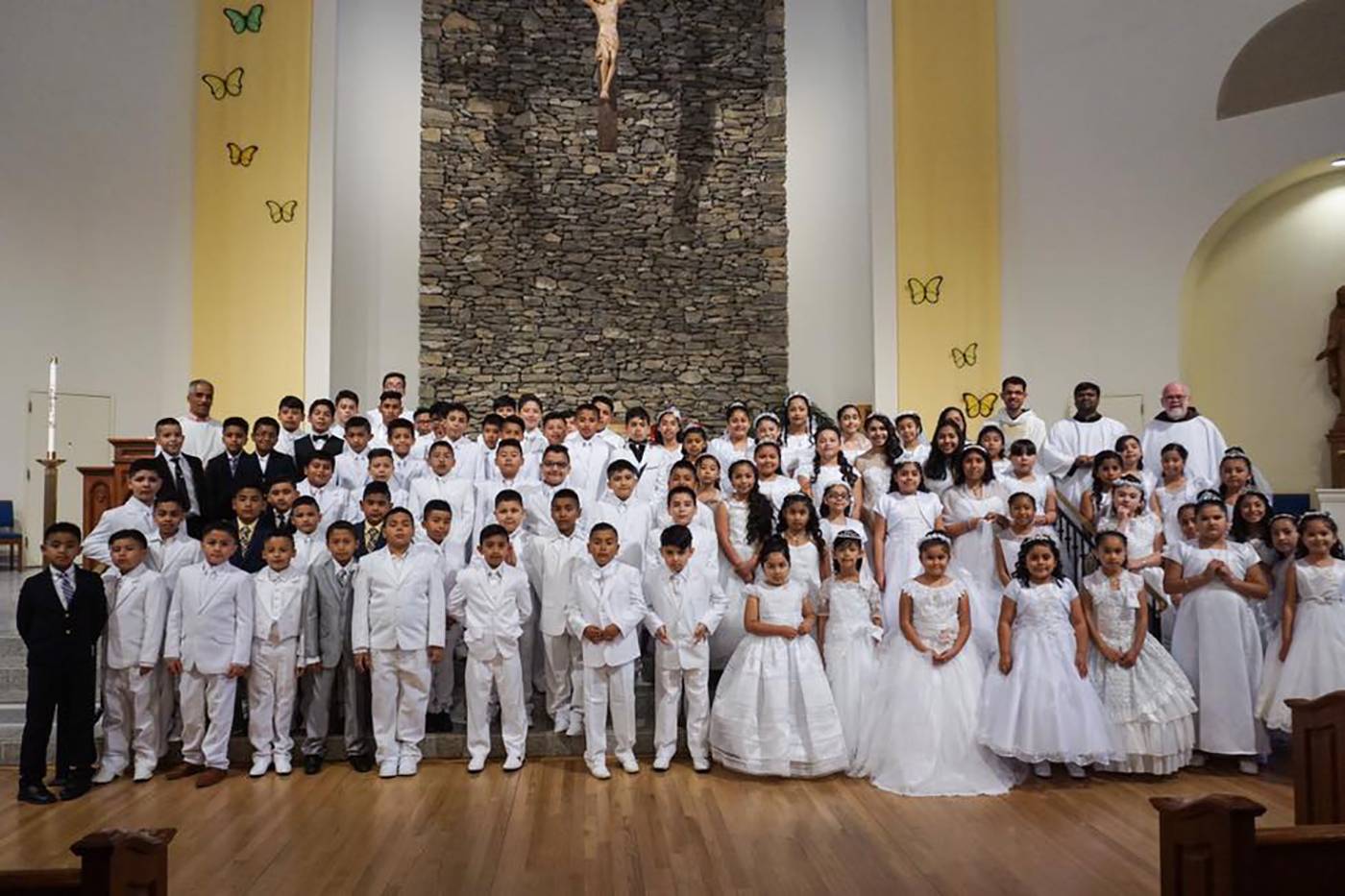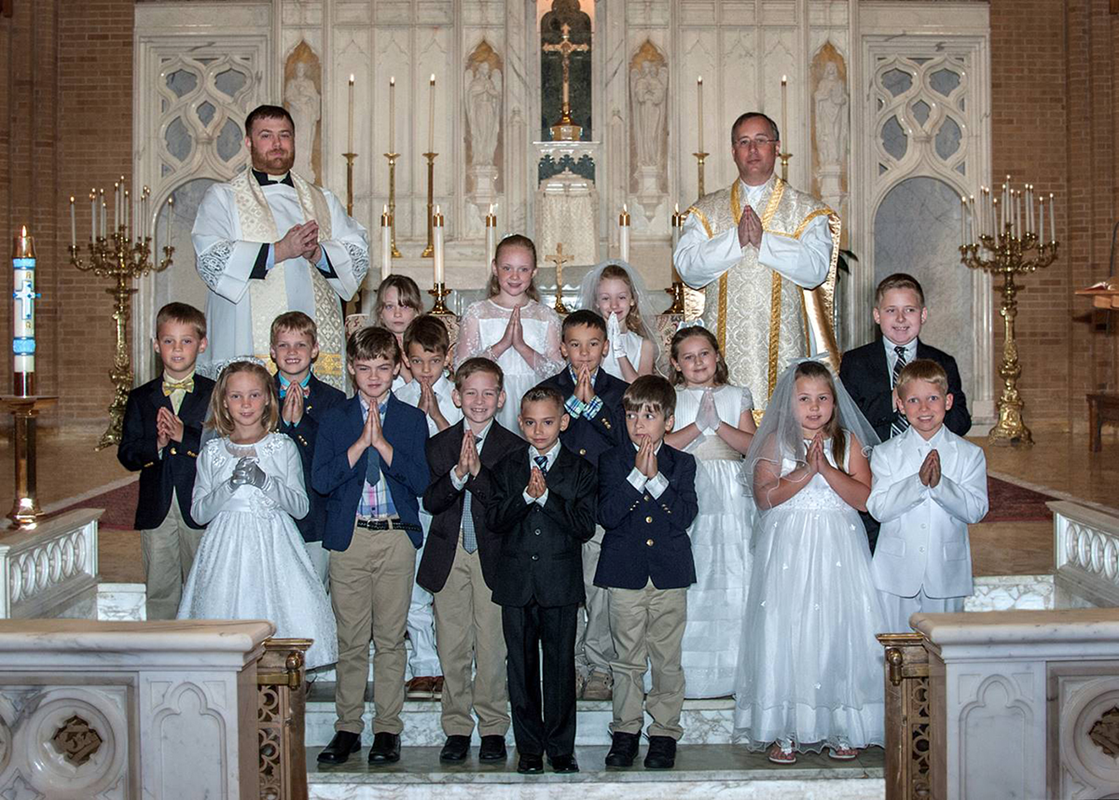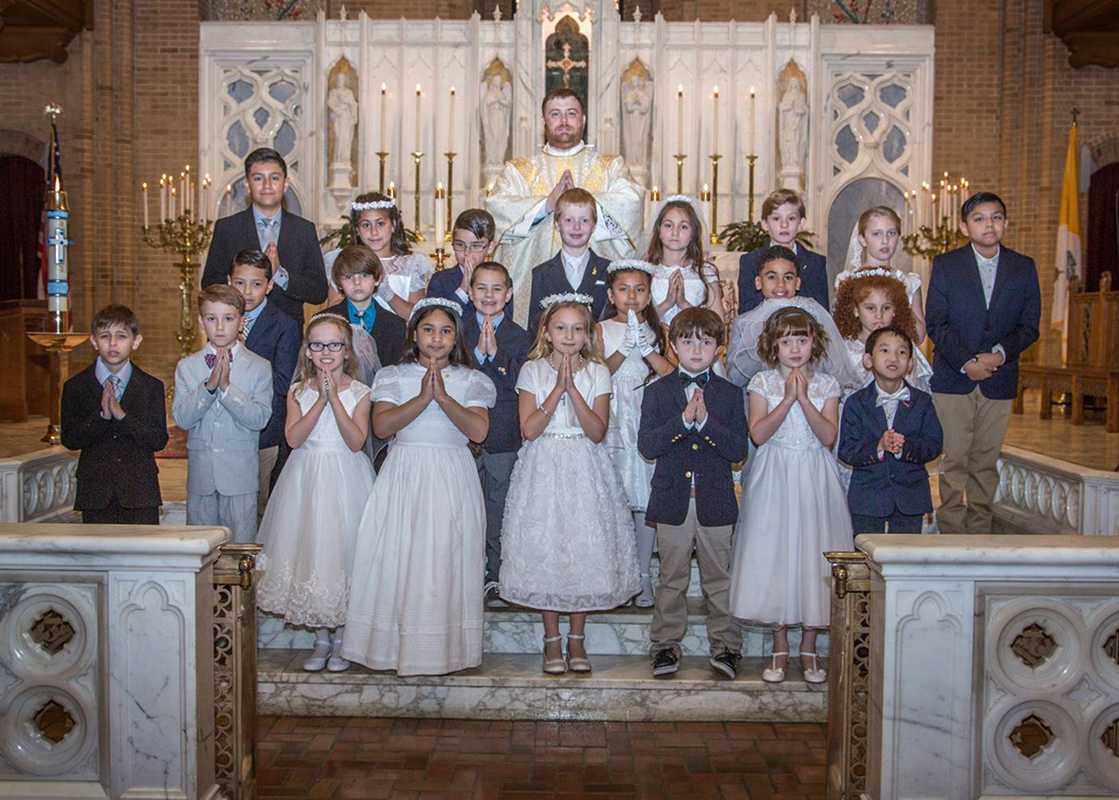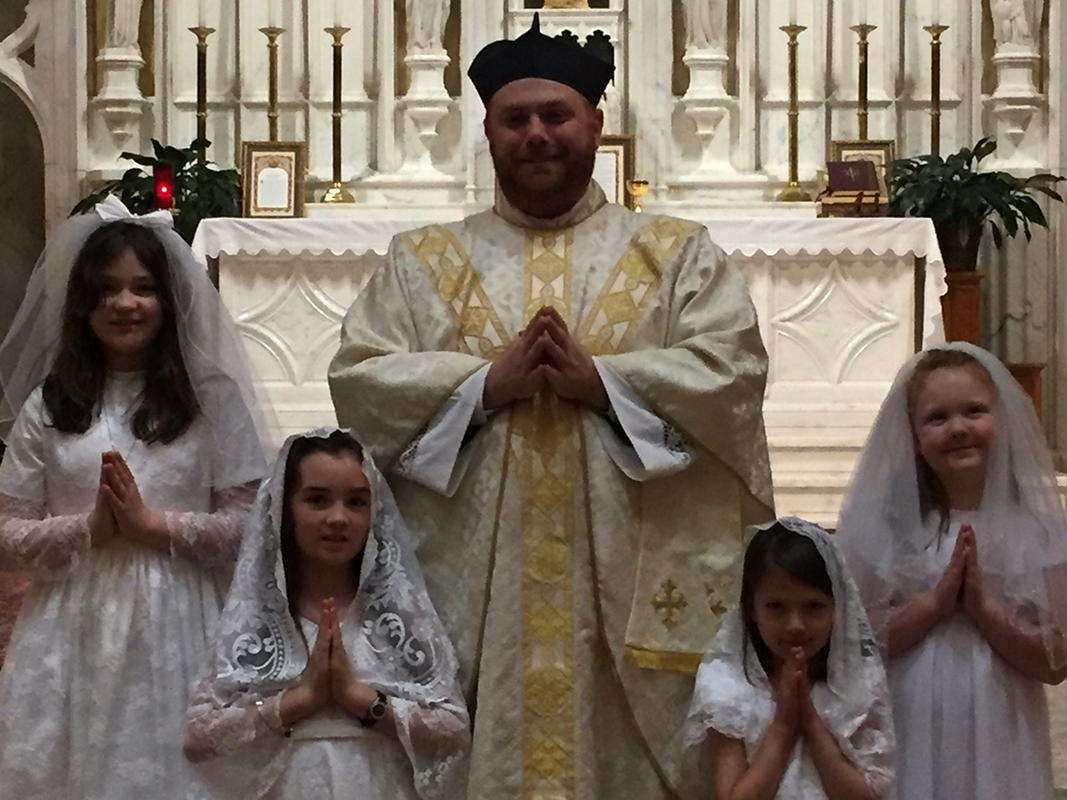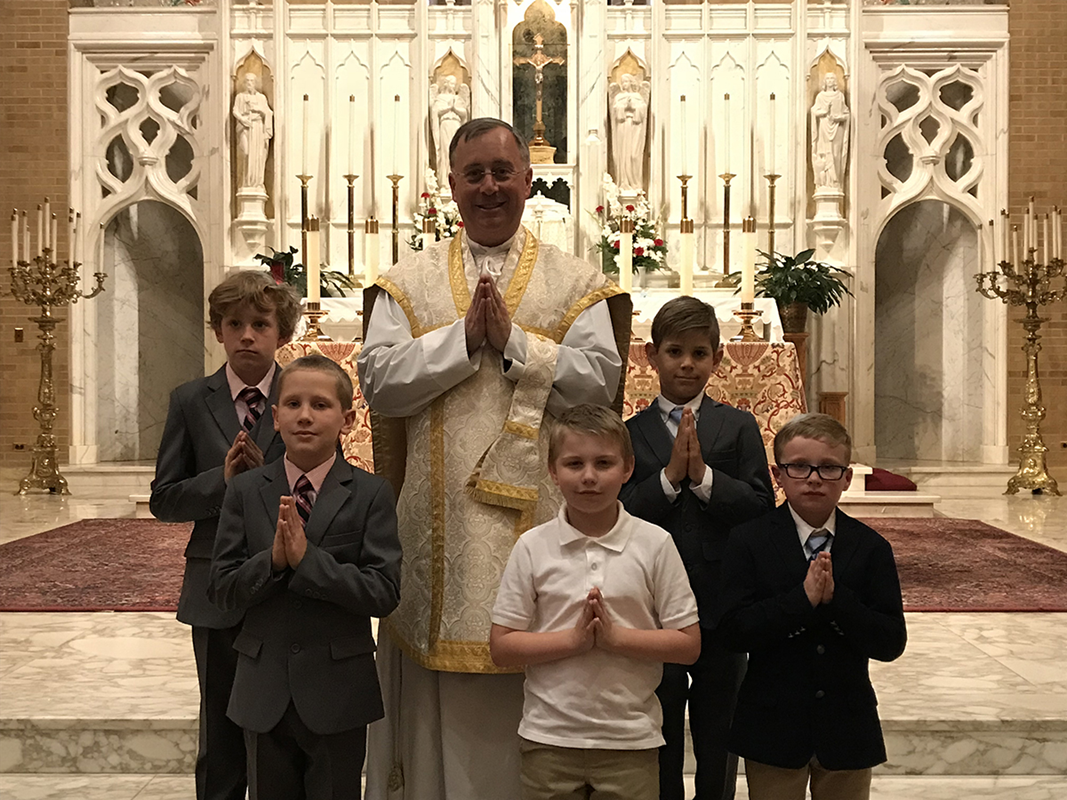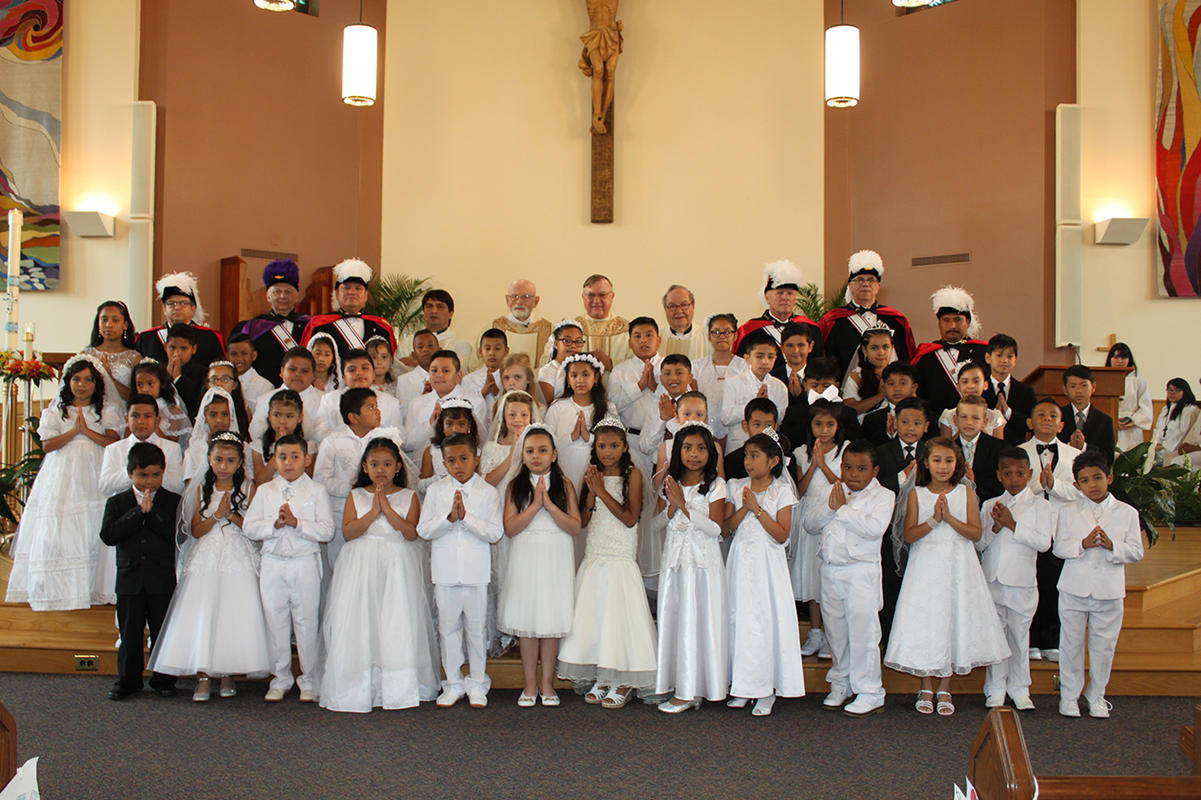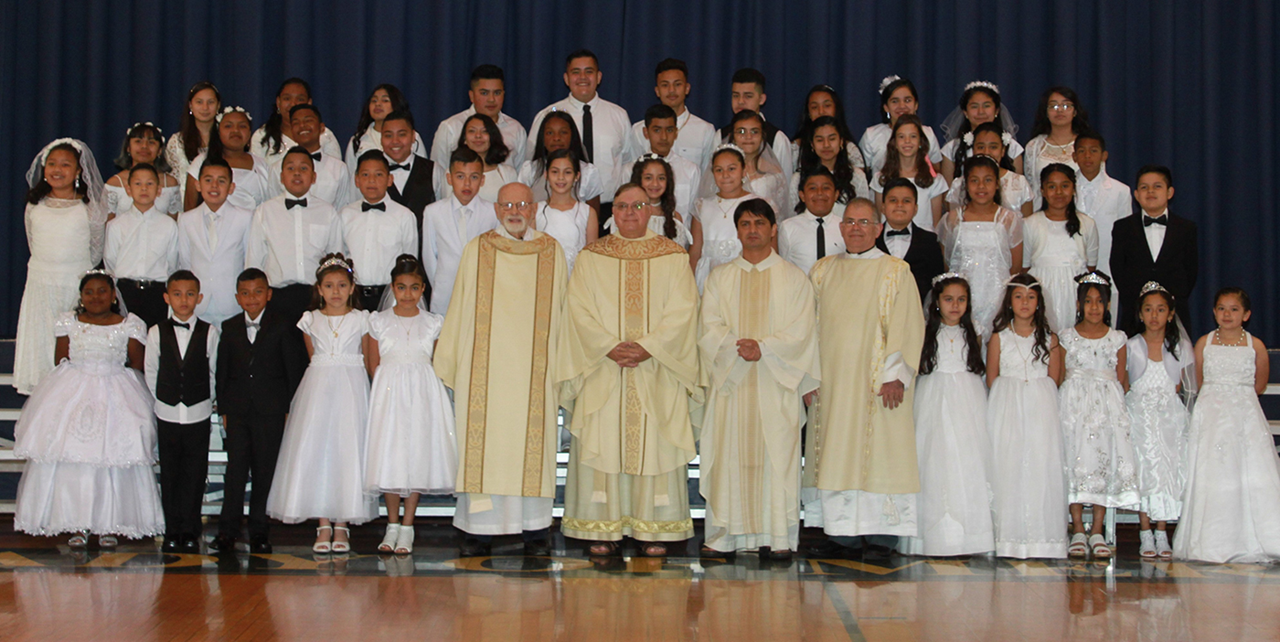 WINSTON-SALEM — To witness a life well lived, one has to look no further than Deacon Joe Schumacher, Ph.D., of Our Lady of Mercy Church.
WINSTON-SALEM — To witness a life well lived, one has to look no further than Deacon Joe Schumacher, Ph.D., of Our Lady of Mercy Church.
He may be 90 years old, but he confesses, “I still don’t have time to do all that I want to do every day.”
Most of us would be taking it easy at that age, but not Deacon Joe.
A member of the first class of 19 permanent deacons ordained for the Diocese of Charlotte in 1983, he is celebrating 35 years of service to the people of the diocese, and is still going strong.
Deacon Joe rises each morning at 5 a.m., prays morning prayer and the rosary, takes a walk, and then heads to church to assist at the 8:30 a.m. weekday Mass at the parish. He still preaches the homily every Wednesday at Mass. He also assists at the Saturday evening Mass and the Sunday 11 a.m. Mass.
“I love the people,” he says. “I fell in love with Our Lady of Mercy.”
That is obvious when you consider all the ways he has served his parish over the years.
The father of nine children, he and his late wife Virginia were always active in their parish, even when he worked full-time at R.J. Reynolds in Winston-Salem.
In fact, he was so committed to serving the people of Our Lady of Mercy Parish that he left his job just four years after becoming a permanent deacon so he could serve the church full-time.
Always a family man, Deacon Joe baptized many of his 24 grandchildren and even some of his 11 great-grandchildren. He has also officiated at the wedding of three of his granddaughters.
One of the hallmarks of Deacon Joe’s vocation to the diaconate has been works of mercy.
For 25 years he visited the sick in hospitals and nursing homes. For the past 22 years, he has led a Communion service at a local nursing home. For 12 years he was active in prison ministry, bringing prisoners to his home for family gatherings.
Over the course of three decades, Deacon Joe has prepared dozens of couples for marriage, as well as couples seeking to baptize their children in the Church.
In the past 35 years he also served in soup kitchens, taken in boarders, conducted funeral services and served on Cursillo retreats, helping to lead people closer to God.
A talented woodworker, he has made hundreds of wooden crosses and also some tables and cabinets for use at the church. He says “all of these little acts of service have been done with love.”
Deacon Joe’s pastor, Conventual Franciscan Father Carl Zdancewicz, says he is “a man of great service. He is a Renaissance man. He reads, walks, plays pickle ball at the YMCA and works in his woodshop, making very creative gifts.”
Father Zdancewicz believes Deacon Joe “creates a model for people, especially for the elderly.”
“He does a tremendous job at the parish,” he adds.
Recently Deacon Joe ministered to a woman whose 16-year-old daughter had become pregnant, when she approached him at one of the baptismal preparation classes he conducts. The teenage mother-to-be was ashamed and didn’t know where to turn. Deacon Joe assured them that God loved her and her baby, too. When the baby was born, he administered the sacrament of baptism.
The grandmother approached Deacon Joe at church recently and told him, “If it wasn’t for you, we wouldn’t be here.”
“That blows my mind,” he recalls. “I pray every day, ‘Lord, help me to do the good that I strive to do.’ And that is what He does.”
Deacon Joe explains, “I have always wanted to do my best as a deacon because I wanted what I did to be a good experience for them. I didn’t want to be clumsy, fall on my face and be a distraction for them. So I studied, worked hard and prayed.
“In the 35 years of my ministry there was a lot of turnover in our parish, but I have loved them all. After 35 years, I realize how much I have touched people over the years.”
— ¬SueAnn Howell, Senior reporter


